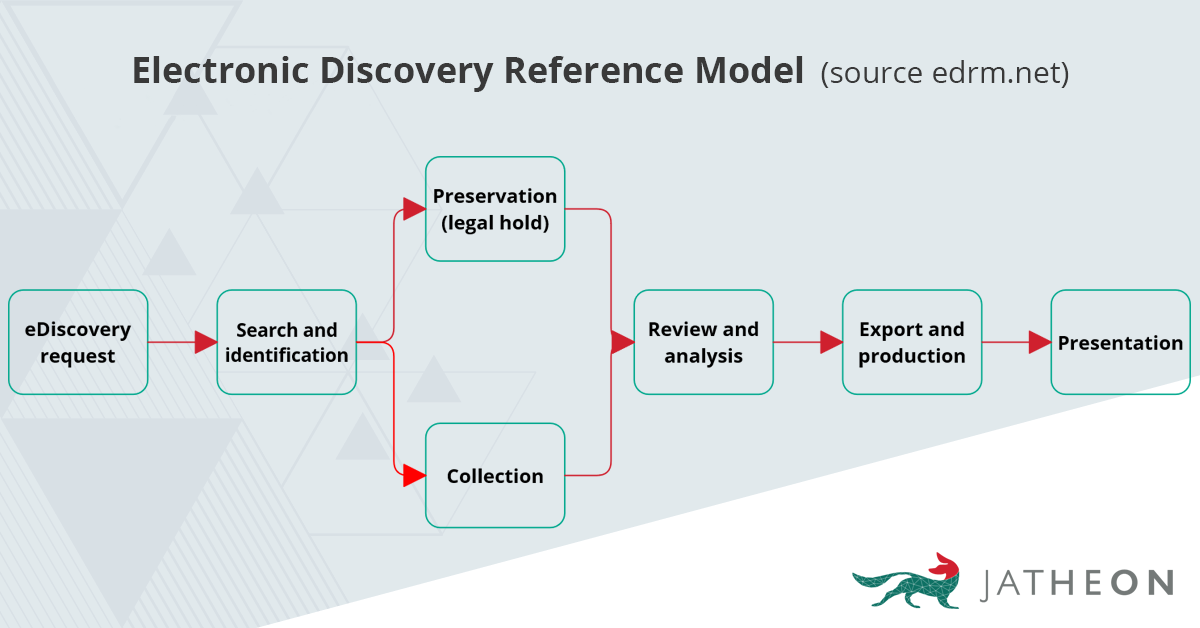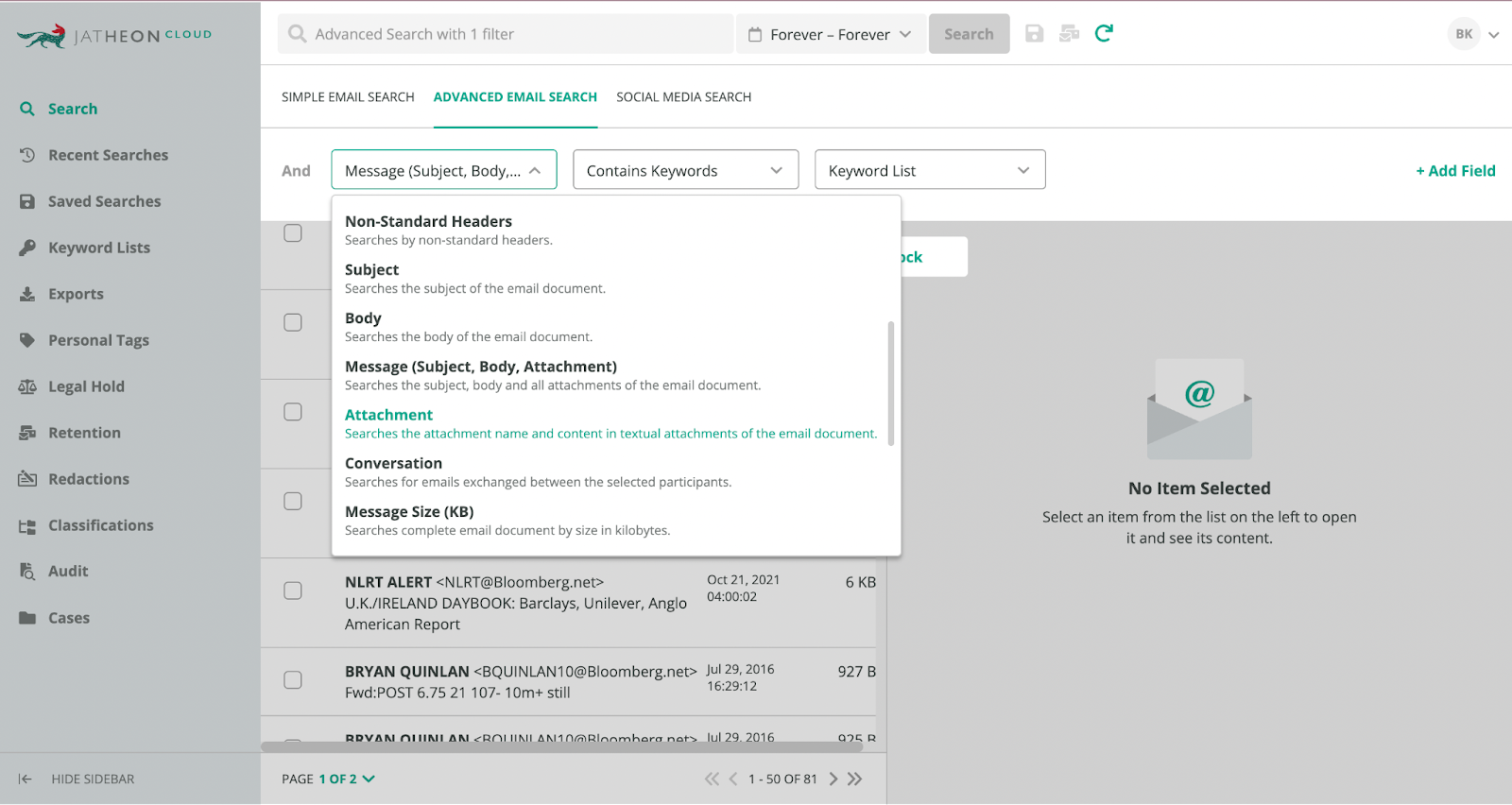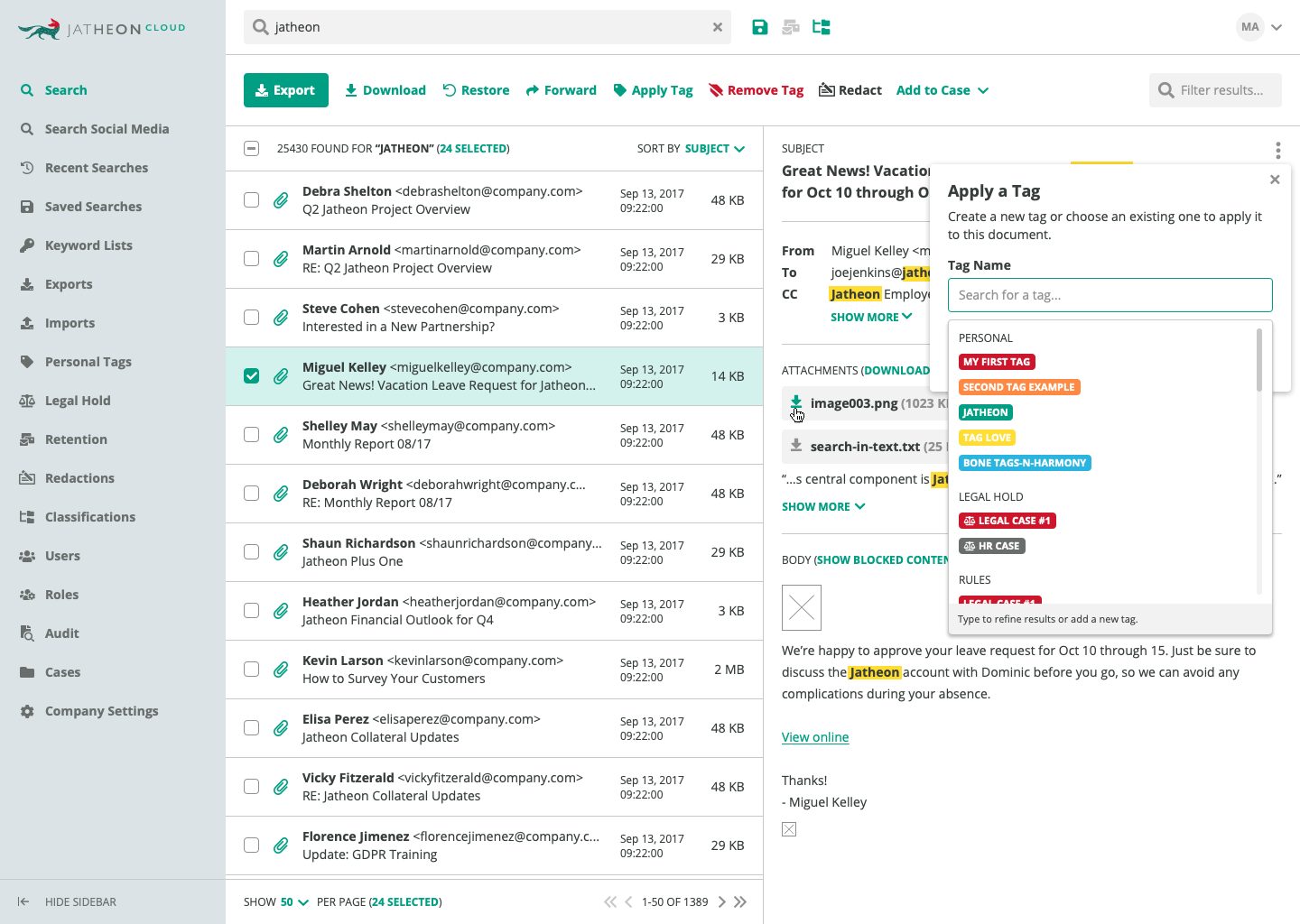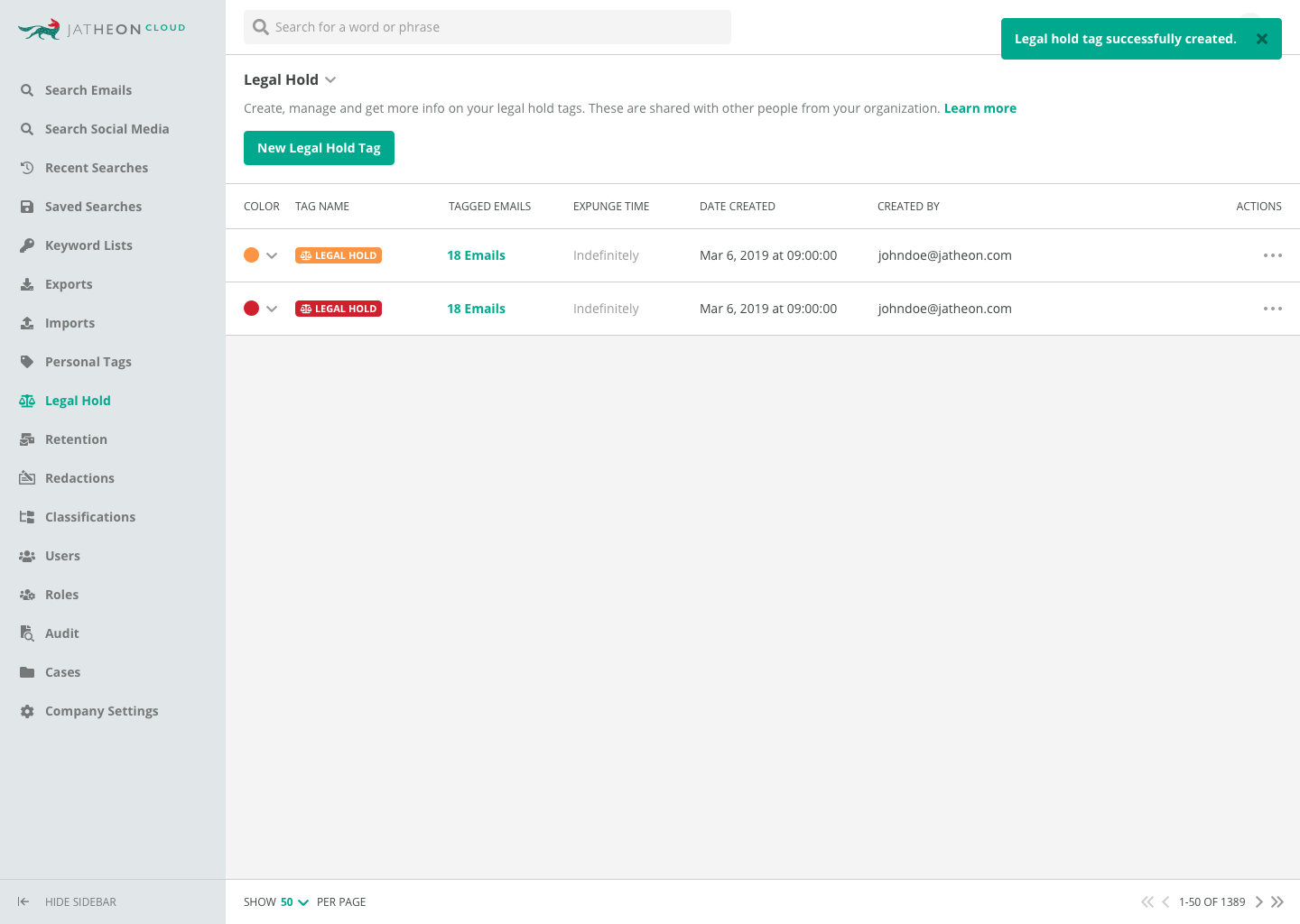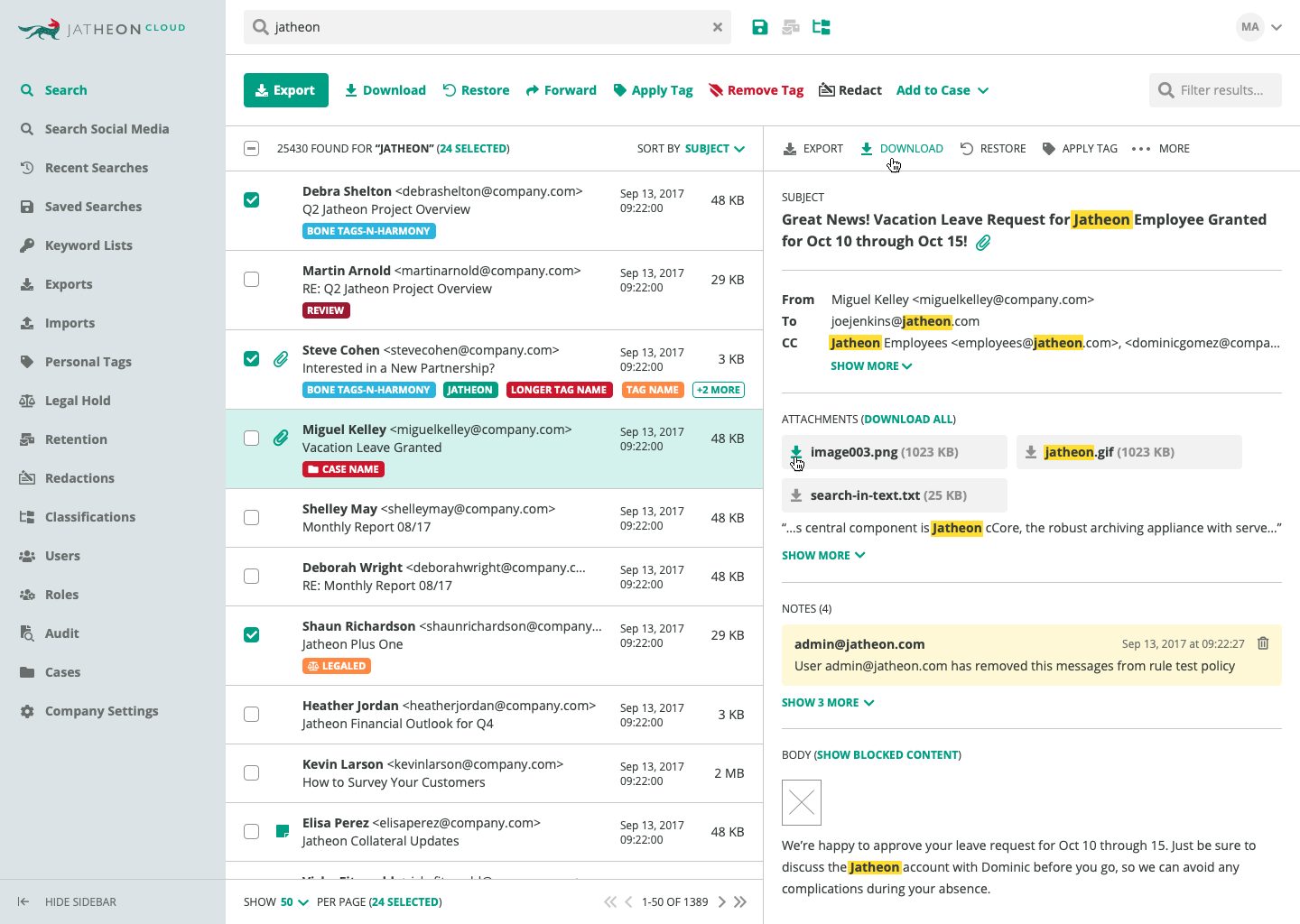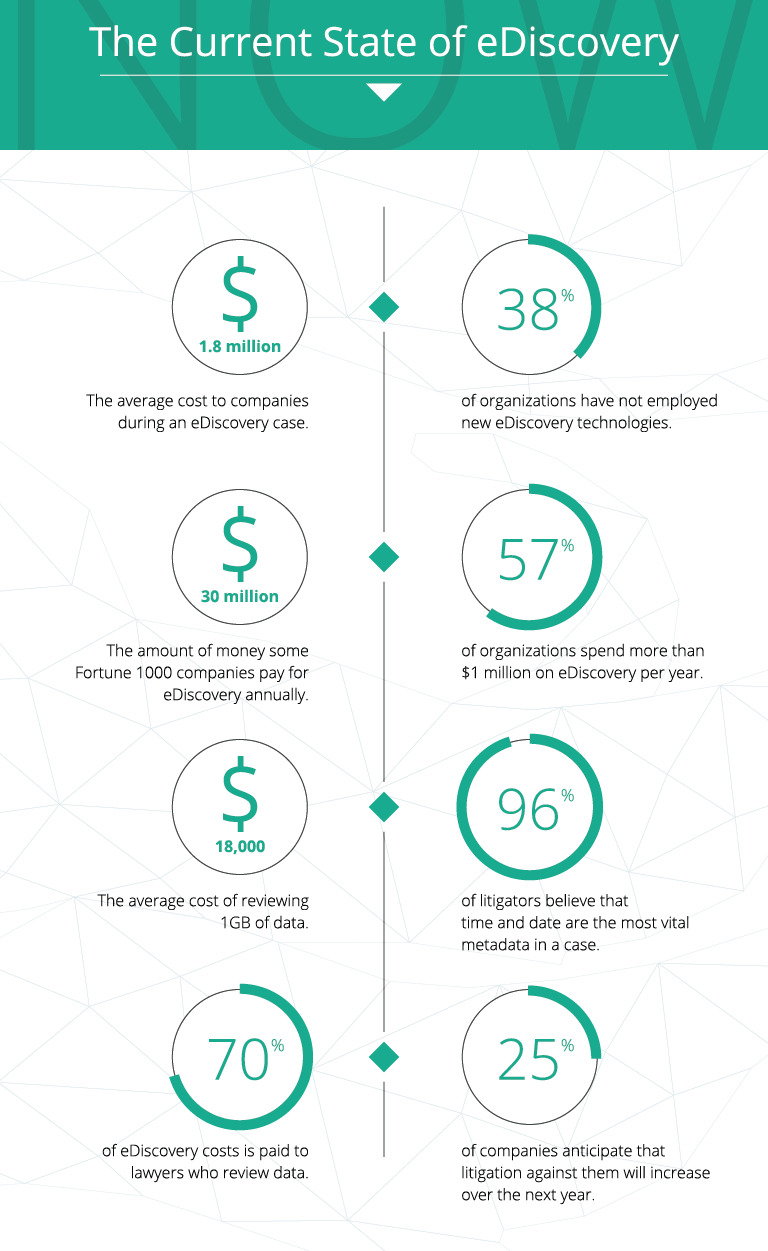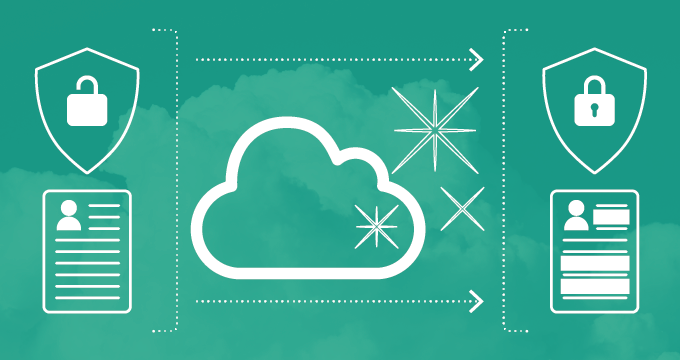We won’t beat around the bush — your electronic communications records might be the deciding factor in a legal case.
That’s because all of your email and communications can be used as evidence in legal disputes, investigations, FOIA/CCPA requests, and lawsuits.
However, most organizations can’t provide this evidence because it was either deleted a long time ago or because the evidence is scattered across systems and impossible to find.
This article will help you understand:
- What is legal hold
- How does the legal hold process work
- The most important legal hold procedures
- Difference between in-place hold and litigation hold
- What are ediscovery requests
- The most important features to look for in your ediscovery solution
- Key elements of a legal hold policy
The Legal Hold Definition
A legal hold or litigation hold is a process used by organizations to preserve relevant electronic information when a legal case or an ediscovery request is anticipated.
In short, when an organization learns of an upcoming case or investigation, it can hold off on its regular data retention policy and prevent information from being deleted. This means that certain records can be preserved beyond their originally specified retention period.
When applied, legal hold protects the original version of each email, text message, or social media record from user modification and evidence spoliation.
From the technical aspect, legal holds are handled through tags (or less commonly, special policies) and can only be removed manually.
Freezing and disabling the deletion of specific records is important because:
- It helps avoid evidence spoliation (the intentional or inadvertent deletion, altering, or destruction of evidence).
- It streamlines the archiving process because it allows you to preserve only the messages relevant to the case.
Litigation hold is a very common feature in modern archiving solutions and is paired with a message integrity check to prove the authenticity of the preserved record.
What Does the Legal Hold Process Look Like?
We can’t start talking about the legal hold process until we take a look at the whole ediscovery process as litigation hold is only one part of it called preservation.
It’s called the EDRM framework and starts after identifying the need for a legal hold or an ediscovery request, after which the organization can start searching for the ESI and either collect it immediately or put it on a legal hold.
After the need for a litigation hold is met, the process goes as follows:
- Inform employees that the documents must be preserved.
- Apply legal hold to the items in question.
- Document the litigation hold process for the items.
- Make sure the legal hold stays in effect until the completion of the lawsuit.
Since the legal hold process isn’t done physically anymore, let’s take a look at how this process looks in a modern archiving solution like Jatheon:
- Use the Advanced Search feature to find the information needed for the legal case.
- Apply the appropriate legal hold tag marking the items for prolonged retention. Note that you can have multiple legal hold tags for different cases.
- When the items are needed, head to the legal hold tab and find all the items under the appropriate legal hold tag.
- Open the individual items and export the information that will be used in the case.
It’s a very simple process if you have the appropriate solution.
However, it’s not just about finding and preserving the information. You also need to notify your staff and clients as soon as the litigation is anticipated as they need to be aware that they can be personally sanctioned for failing to observe their legal hold obligations.
While the lawsuit is pending, all emails and other ESI connected to the case will be reviewed by your lawyers, the opposing party’s lawyers, or both.
In case you locate a smoking gun email that implicates the company and confirms its guilt, your lawyers will have the early knowledge and enough time to prepare or propose a settlement.
Whatever the outcome, your organization will have all the necessary info early on, which ensures there are no surprises along the way.
Key Legal Hold Procedures
After putting a legal hold on specific documents, it’s important to keep in mind that there are still obligations you are responsible for.
Four key legal hold procedures you should abide by while a document is on hold are:
- Identify custodians — Determine individuals who possess relevant information and instruct them on the scope of the legal hold.
- Remind custodians about the hold — Make sure that all relevant parties are regularly reminded about which documents are on hold and what their obligations are.
- Regularly review the legal hold — As the scope of your hold changes due to new information being found, it’s crucial that review it and consider adding amendments.
- Lift the hold — When the legal hold is no longer necessary, communicate clearly to custodians to resume normal data management practices.
These procedures along with the previously mentioned processes complete the whole legal hold process and ensure data is properly held and released.
Key Elements of an Effective Litigation Hold Policy
After understanding the EDRM framework and implementing the litigation hold solution into your ediscovery process, you need to think about how you’ll go about archiving data for compliance purposes.
Every organization should have these key elements in mind when designing their litigation hold policy:
- Scope — Specify the types of legal matters and requests that trigger the initiation of your legal hold process.
- Roles and responsibilities — Clearly define who is responsible for legal hold and ediscovery processes and what their obligations are in each part.
- Communication protocols — Ensure that everyone will be informed in the case of a legal hold initiative and how the communication about the process will proceed.
- Process timeline — Define what needs to be done and when for the process to take as little time as possible.
- Documentation — Document the whole legal hold process that will act as evidence of compliance and due diligence.
- Data preservation guidelines — Provide training and guidelines on how ESI should be handled in your organization.
- Policy updates — Consider improving your policy and processes regularly to adhere to new standards and improve their efficiency.
In-Place Hold vs. Litigation Hold
There might be some confusion between the terms in-place hold and litigation hold, and how they are different from one another.
In-place hold is the process of preserving an organization’s mailbox content in its original location without the ability to alter its content.
On the other hand litigation hold is a broader concept that preserves all of your communications data beyond your mailboxes in its original context.
Simply, in-place hold preserves emails within mailboxes, while litigation hold extends its reach to other data sources ensuring a more thorough preservation of data.
What Are Obligations to Ediscovery Requests?
An ediscovery request happens when your organization is asked to disclose electronic information as evidence.
This information usually comes in the form of employee electronic communications and there are many reasons for requests:
- Allegations of fraud
- Unfair business practices
- Workplace disputes
- Data privacy issues
- Discrimination
- Sexual harassment cases
Once an ediscovery request is prompted, the court decides how much time your organization has to produce the requested data and deliver it.
This means that you need to go through all of your electronic records and find the appropriate information in time. Generally, the process is at your expense.
The costs arise mostly from retrieving and reviewing the requested data. According to MarketWatch, the majority of Fortune 1000 corporations spend between $5 million and $10 million annually on ediscovery, with several companies reporting costs as high as $30 million in 2020. A full 70% of the costs were tied directly to the physical review of documents.
And back in 2015, an airline was ordered to pay more than $2.7 million in sanctions for failing to turn over electronic data, in addition to more than $4.7 million in sanctions for earlier discovery violations.
And if you think the costs are high, think again, because failing to find the requested information can lead to legal sanctions or fines for withholding evidence.
With such a huge risk, you are obligated to go through the ediscovery process when requested — even if the costs are high.
However, most ediscovery costs come from the manual labor needed to go through huge volumes of data. That’s why organizations use modern archiving solutions that can automate the ediscovery process, lowering the costs tremendously.
Most Important Ediscovery Features
A proper archiving solution comes equipped with the essential ediscovery functions needed for you to retain, find, and retrieve the requested information.
For a successful ediscovery response, your solution will need:
- Indexing — Retention of all the captured content’s metadata like email send and receive dates, senders, replies, subject lines, and attached documents. This makes your evidence more comprehensive.
- Advanced search — Multiple search options like boolean, fuzzy, proximity, and keyword searches allow you to find the requested records more quickly (without the need for external parties that will only increase your costs).
- User roles — A vital feature preventing unauthorized access to your data. You can define different permissions and access levels by assigning roles to users in your organization. Especially important if external legal teams are included in the ediscovery process.
- Audit log — Lets you monitor user access and their actions in the archive to prove if data was tampered with and who had access to it.
- Retention policies — Determine how long your records will be kept before automatically being deleted.
- Cases — Classify groups of electronic records into different folders for different cases making it easier to get all the data organized.
- Redaction — Conceal personal or sensitive information before court proceedings or when sharing information with third parties.
- Export — After finding the relevant data you will need a way to provide it to the court in a readable format (.PST, .EML, or .PDF).
As the most important feature of any ediscovery-ready archiving solution, the legal hold deserves its own topic.
Summary of the Main Points
Here’s a quick recap:
- Email is still the most widely used communication channel, which makes it common and viable evidence in any dispute or legal case.
- Legal hold is the process used by organizations to preserve relevant electronic information beyond its original deletion schedule and suspend the general expunge policies.
- This usually happens when your organization anticipates a legal case, an HR dispute, or an ediscovery request.
- Freezing records in this way is important because it helps to avoid purposeful or accidental destruction or alteration of evidence that could be relevant to the case.
- Data archiving software comes with the legal hold feature. You can use tags to mark single records or do it in bulk across different users, mailboxes, departments, or data sources (e.g. email and Twitter records).
- Apart from legal hold, you need to make sure your archiving software has other relevant ediscovery features like advanced search, WORM compliant storage, user roles, audit log, retention policies, cases, redaction, and export.
Solve all of your email archiving and ediscovery needs with Jatheon’s cloud archiving solution built for businesses of all sizes. Stay compliant, speed up your ediscovery, and retain all of your business data in one easy-to-use solution.
Read Next:Why Email Archiving Is Crucial for Email Ediscovery Ediscovery Software Comparison: Best Ediscovery Solutions Understanding Email Compliance – Your Guide to Legal Communication |

